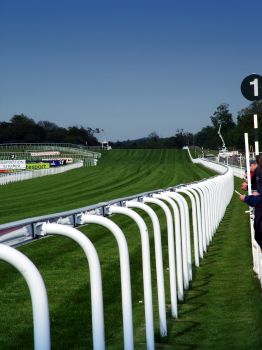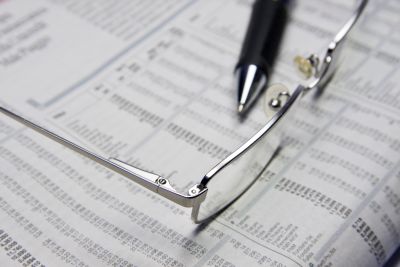
'I just made a good bet,' my friend Virgil said. Virgil works for the U.S. Postal Service and lives in Phoenix, AZ. He would be considered a $2 bettor because he never goes overboard on gambling like some people I know.
'Really? That's great. And what might your good bet be?,' I wanted to know.
Virgil puffed up his chest. '
'American Pharoah is running today and I bet the horse to win I don't think the horse can lose.'

Today is Saturday and American Pharoah is scheduled to run in the 11th race at Saratoga Race Track about two hours from now. Virgil knows I am a poker player with a passion for horses. He wanted to know what I thought of his bet.
Not wanting to ruffle my friend's feelings, I hedged a bit.
'Well, Pharoah is certainly a proven horse and he'll probably win the race,' I finally said. 'I think you'll probably collect some money.'
I didn't add what I was really thinking. If Virgil was content with receiving a .20 or ..40 cent return on a dollar, he had indeed made a good bet. The record crowd at Saratao will almost certainly turn the Triple Crown winner into an overwhelming favorite. To my mind, that isn't a good bet unless you have $2,000 or more to throw away on a four-legged animal that is subject to aches, pains and other problems that even a trainer might not spot.
The power of choice is a valuable tool that all of us have. It also gets some people in trouble because they make a poor choice and wind up on the short end of the stick.
Since I started gambling for fun and profit more years ago than I care to count, I have made both good and bad bets. I have also concluded that a bet doesn't always have to win to be a good bet. In fact, many 'good' bets will probably lose, even though they should pay off over the long run.
Barry Miller was my managing editor at LottoWorld Magazine, a startup national lottery magazine headquartered in Naples, FL. I had been hired as an associate editor on the publication about 15 years ago. It was a fun job that paid well and Barry was a generous editor who appreciated talent.
He and his brother, Eugene, were excellent handicappers who frequented the dog and horse tracks in South Florida Both of them usually won at the tracks while I often ended up a loser.
As I watched my selection finish out of the money, Barry would shake his head and say, 'You'll never win at the track if you keep betting on favorites.' Or, 'when are you going to stop betting against yourself.' He made the remark after I had wheeled a dog in a quinela with all the other dogs in the race. My choice went off at 5/2 and won with another greyhound placing. I won the bet and lost money.
Eugene would just shake his head. 'He'll be a winner one of these days after he wakes up,' he said as he collected about $400 on a long shot at another track.
Eugene was right. I listened to my boss and his brother, and my handicapping improved dramatically. I learned, for example, that just because a horse or greyhound went off as a favorite, it wasn't necessarily the fastest runner in the race. It was simply the public choice because the majority of people at the track think alike when they read the Daily Racing Form or the dog program.

A good bet is not wagering on a 6/5 or 7/5 selection one minute to post time. That choice will probably go off at even or 4/5 odds, meaning your bet even if it wins will pay less than even money odds. That is not a smart bet.
A good bet would be to pick another choice at higher odds that you believe has a reasonable chance to be on the board. Your bankroll will go a lot farther if your $2 bet pays $9.60 than if it pays $3.80.
Workouts can be a vital key in picking a winner. I used to buy a Daily Racing Form in Phoenix, AZ. when I worked as a reporter for the Gazette. I would leaf through the form during my coffee break and if I saw an outstanding workout would make a point of having lunch at Turf Paradise and betting on that particular horse.
I'll never forget the Friday morning I picked up a racing form and saw a first-time starter in a maiden race that had worked three furlongs in 34 seconds. None of the other horses came close to that workout. I decided to bet $20 across the horse which was running in the second race.
About 30 minutes before I was scheduled to leave for lunch, my editor Vic Thornton handed me an assignment to cover a political rally in Scottsdale. It was an important story, I was a reporter and I had no choice on the matter. There was no chance I could make it to the track in time so I didn't get there.
When I got back to the newspaper from the meeting, I sat down at my Royal Typewriter and wrote the story. Then, out of curiosity, I called the track to get the race results.
Olliman, my choice, had won the race at 20/1 odds and paid $44.50 to win. I didn't even look at what it paid to place and show.
To my friend Virgil and all other people who play favorites, I submit THAT would have been a good bet.
Author: Geno Lawrenzi Jr.
(Geno Lawrenzi Jr. is an international journalist, magazine author and ghostwriter. If you have a unique gambling story to share with him, you may qualify for a cash award. Send your story with all the details to glawrenzi@gmail.com ).
Your feedback
Please enter your comment.
Your comment is added.




